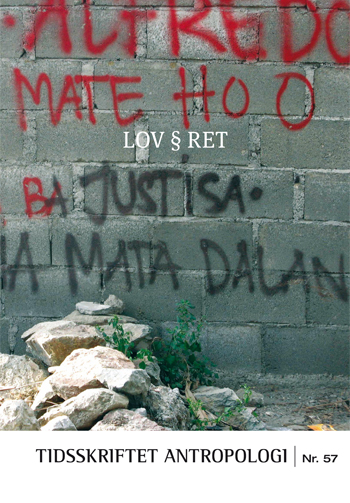LOV OG RET I ANTROPOLOGISKE STUDIER AF MENNESKERETTIGHEDER
DOI:
https://doi.org/10.7146/ta.v0i57.106802Resumé
This article seeks to complement the now well-established anthropological
emphasis on the discursive and social movements’ aspects of human rights by
focusing on their legal character, and examining how law shapes the ability of local
actors to pursue discursive and political strategies within a rights paradigm. The
article begins by examining historical debates over the model of legal pluralism
and argues that we might be better served by making a distinction between human
rights law and human rights talk and then focusing upon four specifi c legal and
social processes; the legalization of rights, rights and the verticalization of confl ict,
the vernacularization of rights and the construction of truth and knowledge
through the methods of legal investigation. The article concludes with a call for
anthropologists to venture into the sites of production of international human
rights law and norms and to gain access to international criminal tribunals and
examine their internal legal procedures and their practices to establish knowledge.
Researchers need to document and analyze how the verticalization of a national
confl ict occurs at the UN, and how legal and political experts who author rights
treaties respond to the hybridization and vernacularization of the terms they have
sought to define.
Downloads
Publiceret
Citation/Eksport
Nummer
Sektion
Licens
Ophavsretten til artiklerne i Tidsskriftet Antropologi tilfalder forfatteren.
Artikler publiceret i Tidsskriftet Antropologi må citeres, downloades og videresendes for ikke-kommerciel brug, under forudsætning af normal akademisk reference til forfatter(e) samt tidsskrift, årgang, nummer og sider. Artiklerne må kun genudgives med eksplicit tilladelse fra forfatter(e) og tidsskriftet.


